You might see this social habit as being somehow related to the much more primitive, “denial,” in that it is an automatic, unconscious attempt to excuse one’s self from culpability for a moral failing or mistake. Anyone who has ever been in a love relationship knows it well, both from doing it, and being on the receiving end. It causes us to continue to function without guilt, and deal with the aftermath later.
Unlike the more primitive, denial, it does acknowledge that a negative social occurrence has happened, but it automatically shifts the question, “why?” to somewhere else for the purpose of not having to deal with emotions arising after a bad decision. Guilt has a very useful purpose in our growth of a conscience, as we’ve seen, but it can also be overwhelming, and get in the way of success at our goals. When the Superego that Freud talked about is overgrown, guilt can also do us harm and make us ineffective as partners by punishing us.
Convincing oneself that no wrong has been done or that everything will be all right may be the verbal explanation to others, or the silent mantra whispered to ourselves, but it arises out of inaccurate assessment and erroneous reasoning. This social habit is all about “convenient excuses,” and you have seen and done it many times. While you may come out appearing on the surface as courteous or collaborative, somewhere inside your partner or your social connections will sense that something is just not right with your explanations. When they are repeated numerous times in similar scenarios, it will eventually become “an issue” with them and they will become conscious of your impairment.


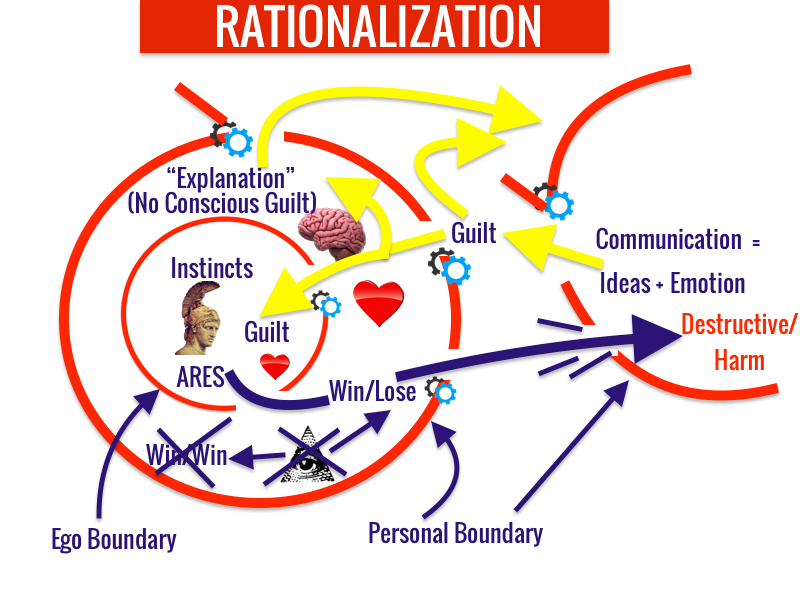
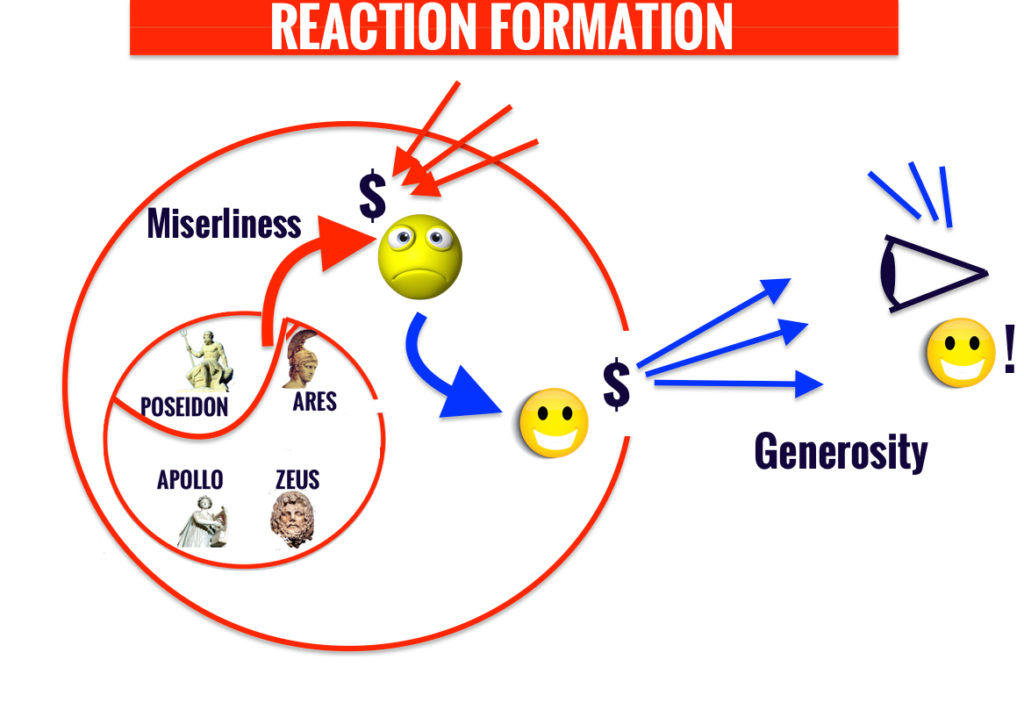

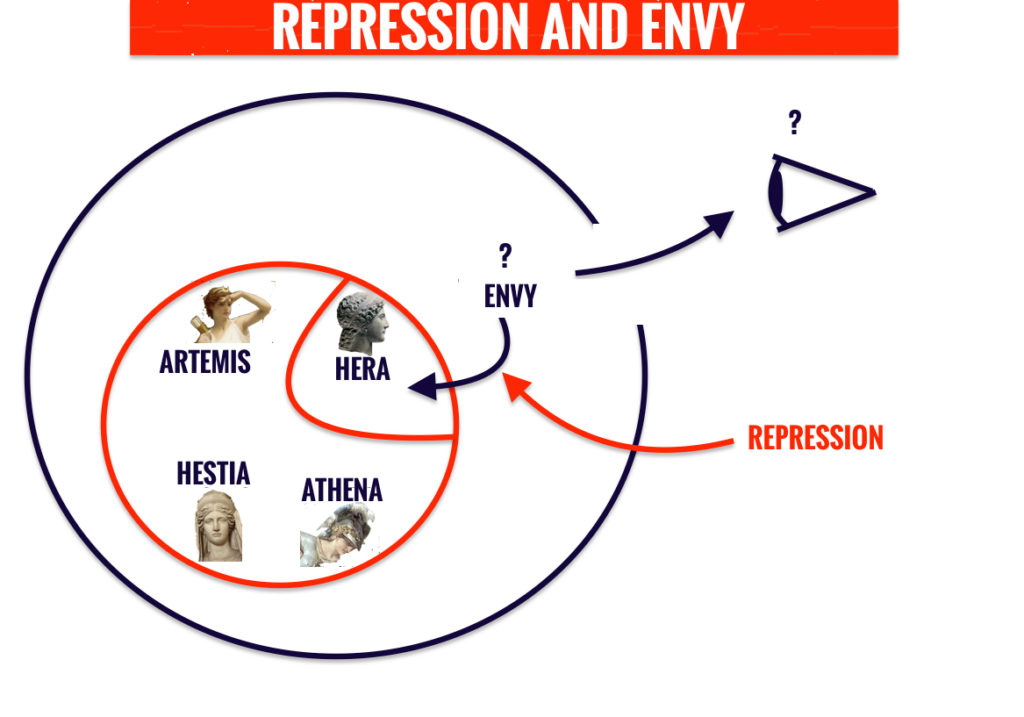
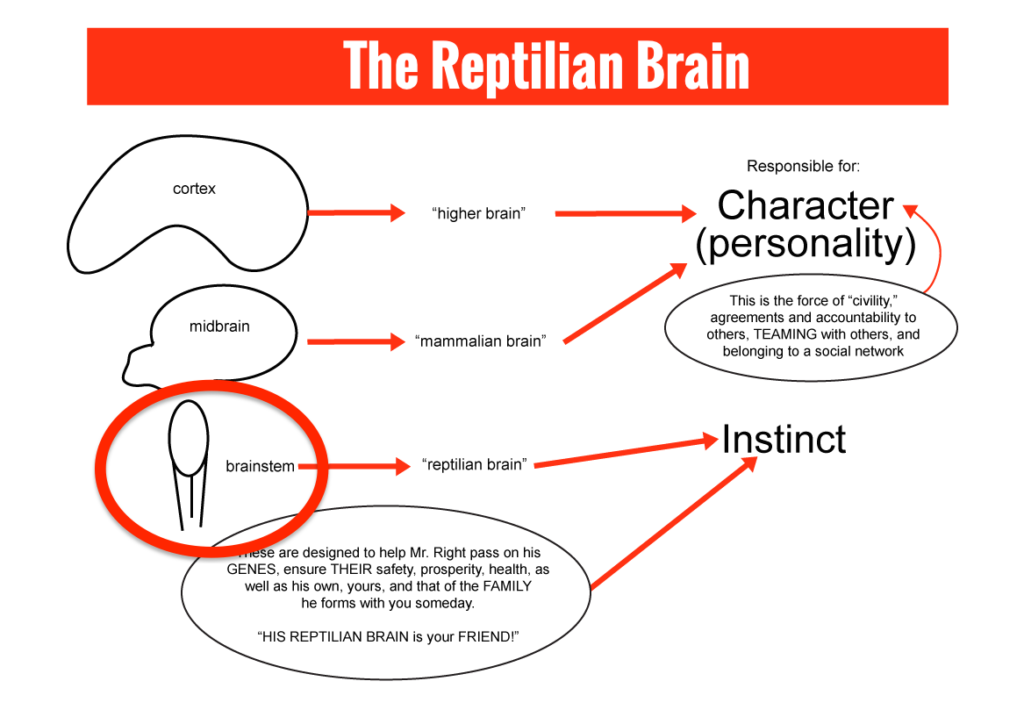
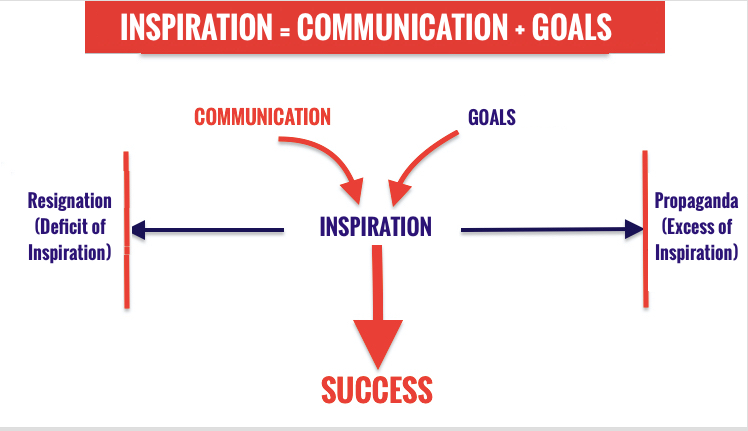 One may be ignorant of how much potential their partner has for reaching their life's
One may be ignorant of how much potential their partner has for reaching their life's 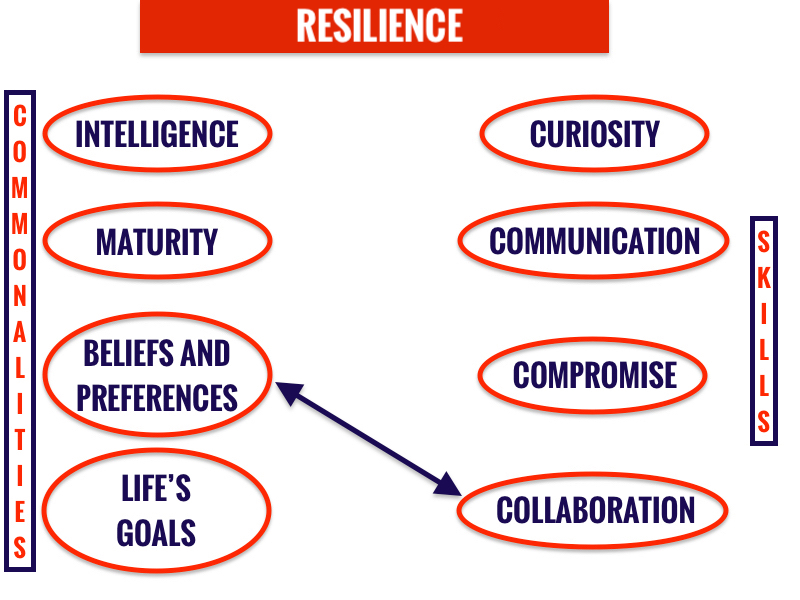 Resilience is defined in the dictionary as "the capacity to recover quickly from difficulties; toughness," or "the ability of a substance or object to spring back into shape; elasticity." The latter definition comes from physics and the physical world and the former is the description of a person. This makes sense, since actually achieving a goal in the end takes a lot of actions and physical activity. And so an "elastic" person contains the humanity to dynamically readjust their approach to things, and bend a little with life and the "curve balls" it throws us. As a capacity to "recover from difficulties," the "toughness" of the resilient person may not be that physical, like your physically frail grandmother's, but it certainly is a mental toughness of character, "the bootstrap gene."
Resilience is defined in the dictionary as "the capacity to recover quickly from difficulties; toughness," or "the ability of a substance or object to spring back into shape; elasticity." The latter definition comes from physics and the physical world and the former is the description of a person. This makes sense, since actually achieving a goal in the end takes a lot of actions and physical activity. And so an "elastic" person contains the humanity to dynamically readjust their approach to things, and bend a little with life and the "curve balls" it throws us. As a capacity to "recover from difficulties," the "toughness" of the resilient person may not be that physical, like your physically frail grandmother's, but it certainly is a mental toughness of character, "the bootstrap gene."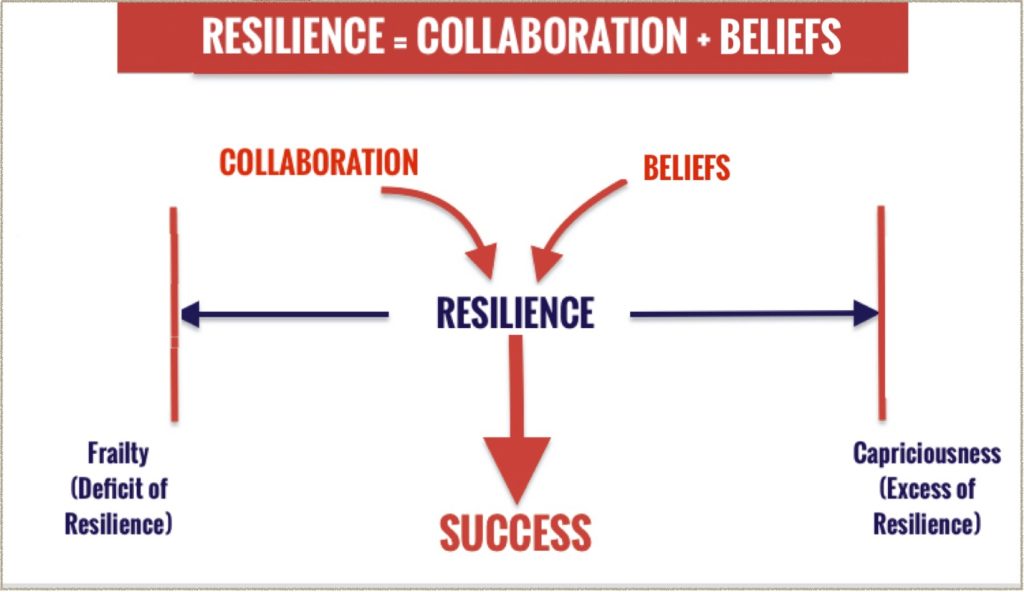 From Aristotle's Golden Mean, we learn that every
From Aristotle's Golden Mean, we learn that every 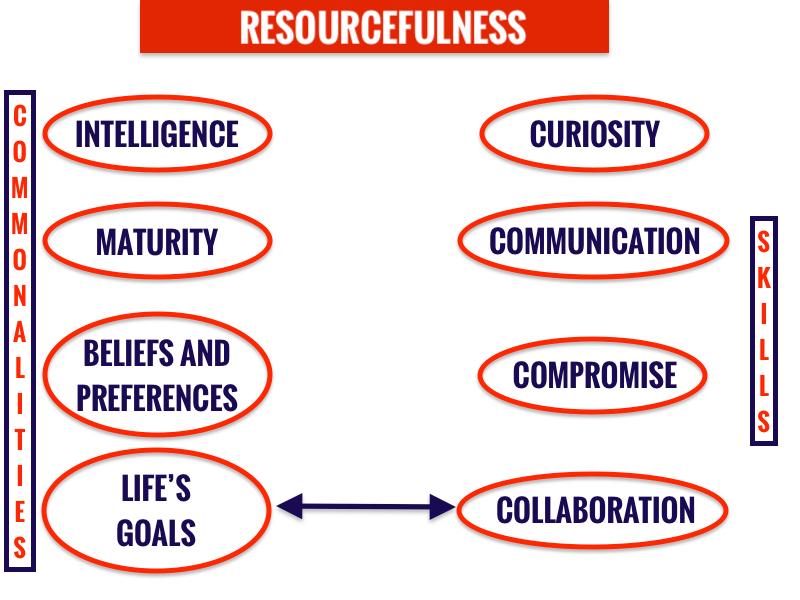 Resourcefulness is defined in the dictionary as "the ability to find quick and clever ways to overcome difficulties," which is a wonderful way to describe it in terms of the needs a couple has for such a person. Clever, and problem solving to overcome difficulties (toward a goal.) It is a character trait and
Resourcefulness is defined in the dictionary as "the ability to find quick and clever ways to overcome difficulties," which is a wonderful way to describe it in terms of the needs a couple has for such a person. Clever, and problem solving to overcome difficulties (toward a goal.) It is a character trait and 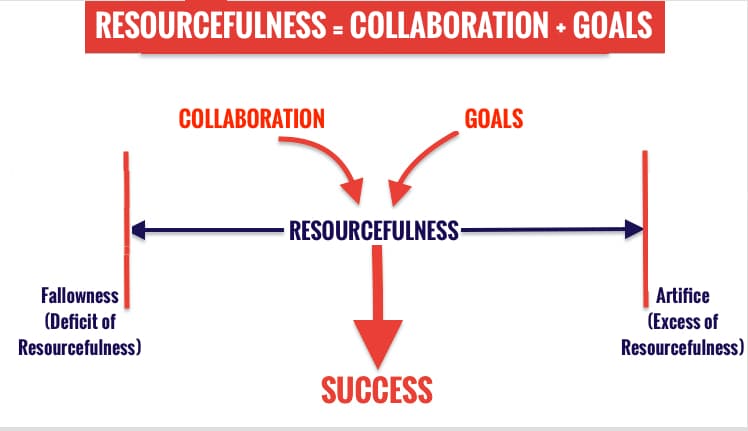 From Aristotle's Golden Mean, we learn that every
From Aristotle's Golden Mean, we learn that every 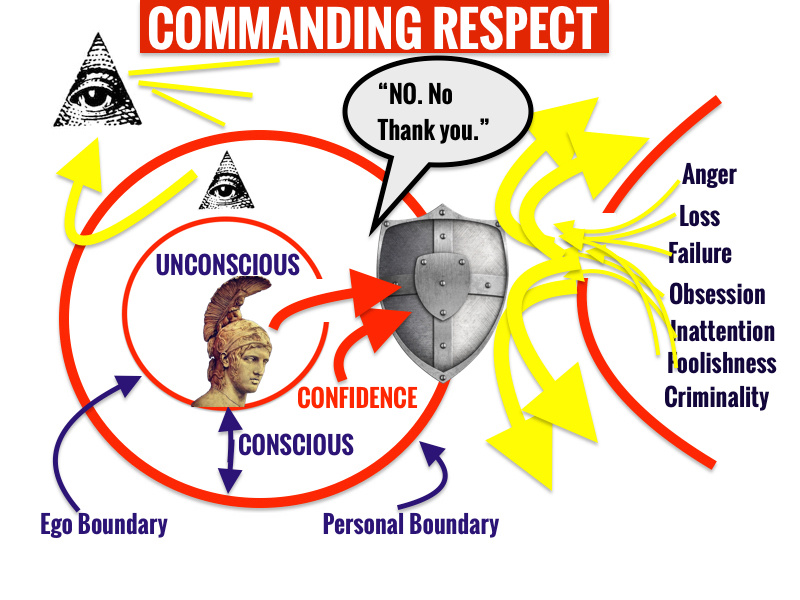

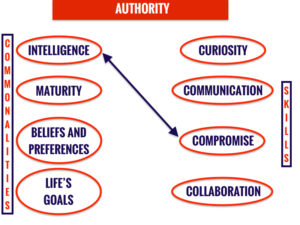 ompromise as a skill of
ompromise as a skill of  Romantic Dynamics is a system based on
Romantic Dynamics is a system based on  The first phase of human
The first phase of human  The second phase of human
The second phase of human  The third phase of human
The third phase of human 



































